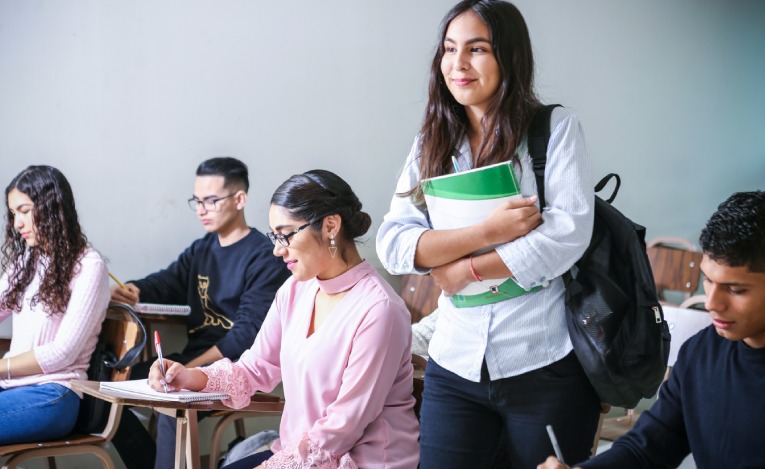
Expatriation offers a unique opportunity for young people to broaden their horizons by discovering a new country, immersing themselves in another culture, and learning a new language. However, this change can be a real challenge for both expatriate children and their parents, often due to the loss of familiar reference points when arriving in a new country.
To navigate these challenges, the Galilée School, located in Paris, provides a supportive environment tailored to young people, helping them to integrate smoothly into French life while maintaining a connection with their original culture.This article explores the benefits of expatriation, the main challenges faced by young expatriates, and offers concrete solutions to support them before, during, and after their settlement in France.
The Benefits of Expatriation
Acquiring a New Language
Learning a language through immersion, such as French, is an incredibly enriching experience for any expatriate child. This type of learning plays a key role in developing memory skills and enhancing concentration. Additionally, bilingualism is a valuable asset that can greatly benefit their academic and professional futures.
Adaptability and Open-Mindedness
Expatriation presents a great opportunity to foster flexibility in young minds, as they are encouraged to adapt to an unfamiliar environment. This experience teaches them to step outside their comfort zones, which will help them handle future transitions with confidence.
Immersion in French Culture
Immersing oneself in French culture is much more than just adapting to a new country. French culture is renowned for its diverse traditions, rich literature, fine cuisine, and emphasis on art and history. By engaging with local customs and traditions, children discover a heritage of immense depth, broadening their perspectives and cultivating open-mindedness for the future.
Before expatriation: preparing children effectively
Inform and involve the whole family early on
As soon as the decision to move abroad is made, it’s important to inform children promptly about the change. Involving them in the preparations and allowing them to choose personal items to bring along can help them feel included and valued.
Create visual references
To alleviate children’s anxiety, show them images of their future home, school, and neighborhood. Virtual tours can also provide a more concrete sense of what to expect, making the transition less daunting.
Introduction to French Culture
Before departure, introducing children to the host country’s culture can ease the transition. Consider engaging in local activities like cooking traditional French dishes, reading books about France, learning popular songs, or watching French films.
During expatriation: providing support and guidance
Choosing the right school
Selecting a suitable school, even before arriving in France, is a crucial step for the well-being of expatriate children. Opting for an international school in Paris, such as the Galilée School, offers a supportive environment that promotes learning the French language and culture, while also respecting the children’s original culture. This approach allows them to gradually integrate into their new surroundings.
Encouraging socialization
Social interaction is essential for the successful integration of expatriate children in France. Encourage them to participate in local activities, such as joining sports clubs, attending art workshops, or going on cultural excursions to help them make new friends.
Using engaging learning methods
To make learning French language and culture enjoyable, consider using fun and interactive methods. Role-playing, museum visits, and cooking workshops are excellent ways to help children discover France in an engaging and interactive way.
After expatriation: monitoring and adjusting for a smooth adaptation
Ensure emotional well-being
Once the family is settled in France, it’s crucial to pay attention to the children’s emotional adjustment. Be attentive to any signs of stress or discomfort, and establish open communication to better understand their feelings and provide appropriate support
Create a comforting and familiar environment
To help expatriate children feel more secure, decorate your home with familiar objects from their country of origin. Keeping some family routines can also provide stability and comfort.
Encourage cultural exploration
To help expatriate children adapt effectively, continue to encourage them to explore their new environment. This will help them develop a deeper understanding and appreciation of French culture.
Expatriation is a challenging experience for the entire family, but with proper preparation and ongoing support, it can be an excellent opportunity for personal growth.
The Galilée School in Paris is dedicated to supporting expatriate children in their integration into French society. Discover how our educational approach at this private school in Paris fosters their development, while respecting their original culture and facilitating a smooth transition to the French educational system.

